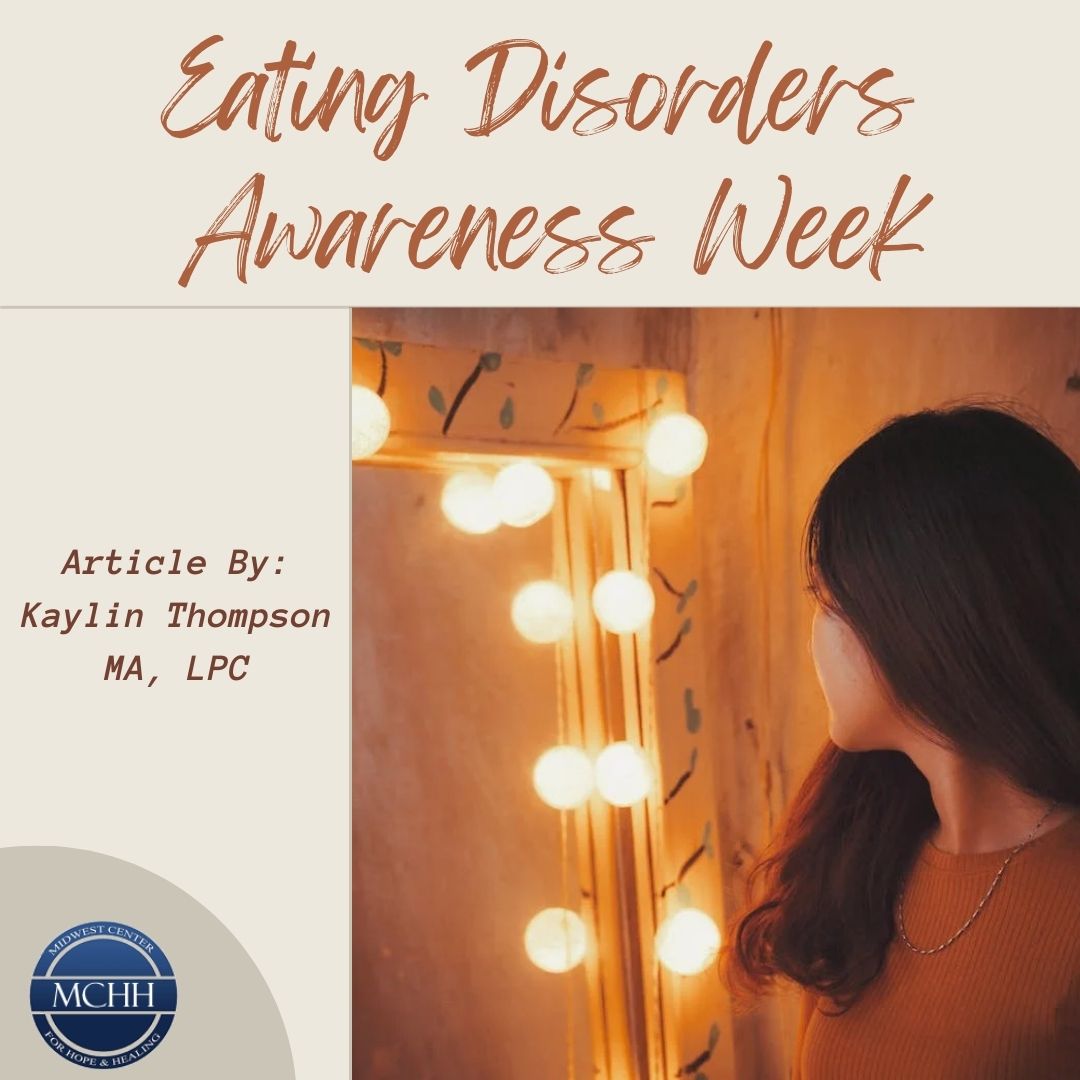
by Kaylin Thompson MA, LPC
Eating disorders are not simply about an illness related to body and food, but rather eating disorders impact the whole person physically, emotionally, relationally, and spiritually. According to the National Association of Anorexia Nervosa and Associated Disorders [ANAD] (2020), eating disorders continue to harm the lives of nine percent of people worldwide and of this total percentage, 28.8 million Americans will be directly affected by an eating disorder in their lifetime. The lethality of the mental illness drives concern for deeper examination of its origins. The National Eating Disorders Association (2018) reported that eating disorders are the second most deadly mental illness, following opioid overdose, and that 1 in 5 people who struggle with anorexia nervosa will commit suicide. Every year, 10,200 deaths result from the lethality of eating disorders (ANAD, 2020). Individuals with eating disorders often will have comorbid conditions such as clinical depression and/or anxiety disorder, increasing the psychopathological dimensions and the likelihood of mortality (Anxiety Disorders and Eating Disorders, 1995). Considering these statistics, the necessity of exploring what factors have the most substantial impact on the development of eating disorders becomes apparent.
Eating disorders cannot be properly prevented, assessed, and treated without deeper understanding of what contributes to its development. Various factors have been explored in the literature as possible predictors and risk factors of eating disorders: psychological and emotional problems, sports and health, genetics, trauma, family and social environment, body image, culture, media, yet past research is unable to provide any straightforward indication to the variables that uniquely develop eating disorders. Instead of a single variable that leads to the development of eating disorders, research suggests that the mental illness emerges from multiple facilitating factors (Causes of Eating Disorders, 2002).
Perfectionism, anxiety, and body dissatisfaction are factors that are consistently and notably attributed to the development of eating disorders. As a therapist who has worked with clients in all three of these areas, I have seen how important it is to help clients identify and understand these challenges so that larger issues like eating disorders can be prevented. Often, negative self-beliefs can lead to perfectionism, anxiety, and body image issues. Helping clients recognize, process, and replace these negative self-views are vital steps in therapy for eating disorders. Counseling can be a safe place to explore the thoughts and feelings that contribute to the behaviors that accompany eating disorders. I also find it beneficial to help clients acknowledge their influences that affect the way they see their bodies and food. Influences like television and advertisements, social pressures, fitness goals, and social media can often be triggers for clients that struggle with eating disorders. The more awareness that a client can raise of their triggers and underlying emotions, the more success that client will experience in having a healthy relationship to his or her body and food. Scheduling an appointment for counseling may be the first step for you or your loved one to begin the journey for overcoming eating disorders.
